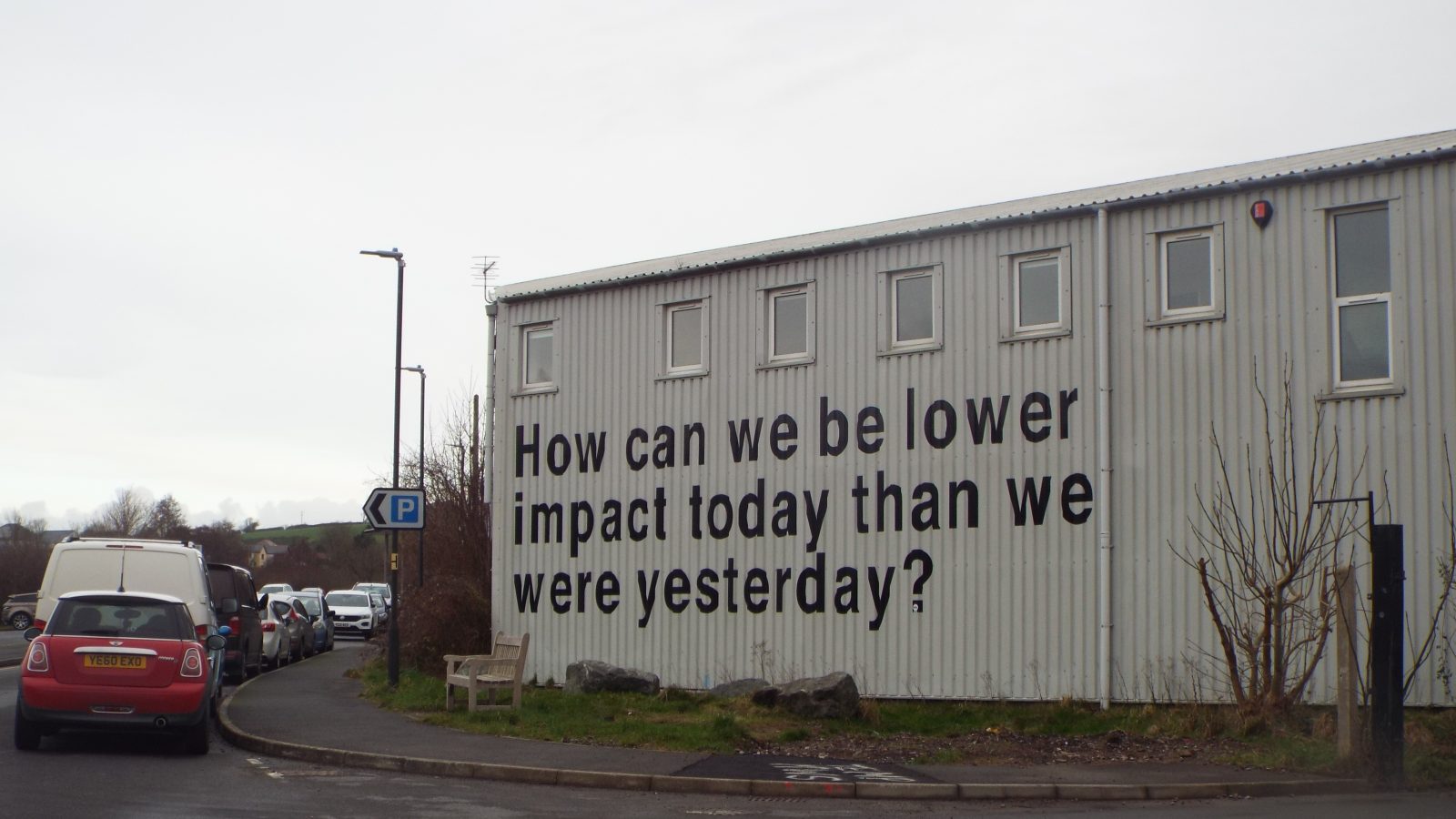Update February 2024
Overview
Cymru Wledig LPIP Rural Wales, the Rural Wales Local Policy and Innovation Partnership, is a group of academic researchers, public bodies, and private and third sector stakeholders that aims to enhance the use of research and innovation to support policy-making, regional development and community resilience in rural Wales. It has been awarded £5 million (at full economic cost) by the UKRI Economic and Social Research Council (ESRC) – the UK Government’s funding body for social science research – for a three year programme starting in January 2024.
The objective of Cymru Wledig LPIP Rural Wales is to facilitate effective policies and interventions that promote inclusive, sustainable, growth in Rural Wales through the framework of the ‘wellbeing economy’, which prioritises an economy designed to deliver social justice for current and future generations on a healthy planet in which citizens are actively engaged in their communities. Our approach has been informed by an extensive process of consultation with a range of stakeholders over the last year, including workshops in pilot communities, which have served to highlight the key challenges facing the region. The work programme of Cymru Wledig LPIP Rural Wales will be dynamic and responsive to issues as they arise, informed by input from stakeholders and communities.
Cymru Wledig LPIP Rural Wales also involves a strong emphasis on capacity building for inclusive participation in developing rural Wales, including supporting communities to undertake their own research to gather evidence to help address local-identified issues, equalities mainstreaming workshops to embed diverse perspectives and interests in policy-making, and actions to enable individuals from often under-represented groups to participate in RWLPIP activities.
Cymru Wledig LPIP Rural Wales is one of four Local Policy and Innovation Partnerships funded by the ESRC, alongside others in England, Scotland and Northern Ireland.
Work Programme
The Cymru Wledig LPIP Rural Wales work programme focuses on four priority themes:
- Building a Regenerative Economy
- Supporting the Net Zero Transition
- Empowering Communities for Cultural Recovery
- Enhancing Wellbeing in Place
Each of these priority areas is supported by a Thematic Group, comprised by academic researchers and stakeholder and community representatives with interests in the topics. These will meet 3 times a year, acting as a forum for knowledge exchange but also proposing topics and questions for research and analysis as part of a dynamic work plan and discussing and disseminating results from Cymru Wledig LPIP Rural Wales work. Expressions of interest in joining a Thematic Group from stakeholders are welcome.
Topics and issues identified by the Thematic Groups will be investigated through seven Work Streams that provide the structure for the work programme:
WS1: Innovation Labs, anchors the solutions-oriented approach of Cymru Wledig LPIP Rural Wales. Four Innovation Labs will run in parallel, linked to the Priority Themes. Each Innovation Lab will involve co-design with stakeholders to map out desired outcomes, identify obstacles to realising these outcomes, and explore and test interventions to overcome obstacles that may potentially be upscaled for wider application.
WS2: Community Action Research will engage local communities in planning and undertaking their own research to examine and address locally-identified problems or objectives. Following a ‘citizen science’ or ‘community science’ model, Cymru Wledig LPIP Rural Wales researchers will work with community groups and volunteers to formulate questions and plan research. It will support community members in collecting and analysing data themselves and in interpreting findings to decide on follow-up actions. It is envisaged that projects will produce evidence that communities may use to identify and implement solutions themselves, support bids for external funding, or lobby public bodies for interventions or changes in policy. The work stream will initially focus on five pilot areas in Corwen, the Dyfi estuary, Newtown, North Pembrokeshire, and Trawsfynydd. Consultations with communities in these areas have started, working with local partners, and have identified prospective topics for research including community readiness for sea level rise in the Dyfi estuary area; town centre transformation and housing in Newtown; and housing, economic diversification, sustainable tourism and/or increasing youth participation in Trawsfynydd. Learning from the pilot projects will contribute to refining our model for community research to be opened up across rural Wales. A network of interested communities will be formed in parallel with the pilot projects, with participants mentored and supported in developing a research proposals for submission to a Commissioning Fund with an open call in 2025, from which at 10 projects will be selected for funding for up to 18 months each.
WS3: Data Synergy, Analysis and Mapping will collate data from a range of sources to create a single accessible integrated online evidence hub for Rural Wales and will undertake analysis, mapping and visualisation of data on topics identified by the Thematic Groups, aiming to reinforce and extend the analytical capacity of partners and stakeholders. This will include analysis of emerging data from Census 2021 and other official datasets, as well as pursuing opportunities from novel synergies of datasets – including administrative data resources managed by ADR Wales. Indicative topics for analysis include population dynamics, indicators of rural poverty, linkages between Welsh language use and economic investment, and prospects for modelling hyper-local data and addressing scalar gaps in data availability.
WS4: Surveys will generate new and updated data to address identified evidence gaps. Planned surveys include a panel survey of households in rural Wales covering a range of topics, likely to include impacts of the cost of living crisis, rural poverty, housing, health and wellbeing, Welsh language use, and transport use and adaptation to net zero; a survey of rural businesses, including questions on investment, innovation, recruitment and skills needs; a communities survey, collecting data on local services and community assets; a rural crime survey; and a survey of young people in rural Wales. Survey results will be made publicly available through the online evidence hub.
WS5: Responsive Research will involve targeted studies investigating topics proposed by the Thematic Groups and strategic partners. The work plan will be dynamic and updated through the three year period of Cymru Wledig LPIP Rural Wales to ensure that it is responsive to new emerging issues and challenges. Initial topics include work on “What does (or could) sustainable growth in rural communities look like?” and on women-run micro-businesses and start-ups. The scale and length of studies and methods employed will be flexible to fit the subject matter. Studies will either be completed in-house by Cymru Wledig LPIP Rural Wales researchers or commissioned from external experts.
WS6: Public Engagement, Knowledge Exchange and Capacity Building will focus on making the results of Cymru Wledig LPIP Rural Wales research and analysis widely available to users in rural Wales and beyond. It will facilitate the application of evidence to enhance rural development and wider policies impacting on rural Wales. A key feature will be a series of four ‘dialogue events’ bringing together stakeholders to discuss ‘wicked issues’ facing rural Wales and work towards consensus solutions, informed by Cymru Wledig LPIP Rural Wales evidence. Outreach activities will also include annual showcases at the Royal Welsh Show and the National Eisteddfod, as well as seminars, events, exhibitions and digital outreach through online resources and social media. Additionally, workshops, training sessions and online resources will aim to build capacity for effective evidence-based rural development and policy, ranging from training for participants in community research projects to professional development on interpreting and using evidence from research.
WS7: Evaluation and Learning is aimed at facilitating learning from the delivery of Cymru Wledig LPIP Rural Wales and dissemination of these lessons within and beyond the context of Rural Wales. It approaches evaluation as something that is not just done at the end of a project but as an iterative process of monitoring and reflection throughout the life-course of Cymru Wledig LPIP Rural Wales. The work stream will involve both assessment of Cymru Wledig LPIP Rural Wales outcomes against objectives and wider work following, reflecting on and learning from activities such as the community research and the innovation labs, as well as supporting research on topics such as institutional capacities, practice in communicating evidence to policy stakeholders, strategies for co-design, and good practice in community engagement.
Cutting across all the work streams will be an Equalities and Inclusivity Mainstreaming Action, which will seek to engage with diverse groups in rural Wales who may not normally be active in research or policy-making. It will use workshop to promote the embedding of equalities into policy responses, and a range of capacity building activities to facilitate input to the Cymru Wledig LPIP Rural Wales work programme and to encourage participation in Community Action Research, Thematic Groups, and placement opportunities.
The Cymru Wledig LPIP Rural Wales works streams will be delivered by a core team of academics (from Aberystwyth, Bangor, Cardiff and Gloucestershire universities), experts in community development and in innovation from non-academic partners, and a staff team including researchers, innovation managers, a community facilitator, and administrative and technical support. Cymru Wledig LPIP Rural Wales will also facilitate opportunities for placements to support knowledge exchange. These will include placements of individuals from non-academic partners and stakeholders or community groups with one of the partner universities for up to 3 months to undertake a specific piece of research or analysis. There will also be short placements by academic participants in a partner or stakeholder organization to develop understanding of policy processes and of evidence needs.
Partners and Stakeholders
The core partnership of Cymru Wledig LPIP Rural Wales involves Aberystwyth University, Bangor University, Cardiff University and the Countryside and Community Research Institute (CCRI) at the University of Gloucestershire, along with Antur Cymru, the Centre for Alternative Technology (CAT), Datblygiadau Egni Gwledig (DEG), Represent Us Rural, Rural Health and Care Wales, Sgema, and Together for Change. Cymru Wledig LPIP Rural Wales will be managed by Director, Prof. Michael Woods (Aberystwyth) with Co-Directors Meilyr Ceredig (Sgema), Prof. Sue Denman (Together for Change), Prof Paul Milbourne (Cardiff), Dr Matt Reed (Gloucestershire) and Prof. Thora Tenbrink (Bangor). Named individuals from the core partners will contribute as Work Stream Coordinators and Co-Leads of Thematic Groups and in the delivery of the work programme.
Beyond the core partners, strategic partners, local delivery partners and other stakeholders have been engaged in the development of the Cymru Wledig LPIP Rural Wales proposal and work programme, and will play an important role in supporting the activities of Cymru Wledig LPIP Rural Wales. These include Ambition North Wales, Growing Mid Wales, Natural Resources Wales, One Voice Wales, Powys Association of Voluntary Organisations, and the Welsh Local Government Association, as well as community groups in the pilot study areas.
Cymru Wledig LPIP Rural Wales will be affiliated with the Wales Institute of Social and Economic Research and Data (WISERD), providing access to an extensive network of expertise across Welsh universities. It also aims to work closely with other related research centres and initiatives, including the Wales Centre for Public Policy, ADR Wales, Wales Productivity Forum, and the National Innovation Centre for Rural Enterprise (NICRE). These centres will be represented on the Cymru Wledig LPIP Rural Wales Advisory Group, chaired by Emeritus Professor Terry Marsden, along with other academic and non-academic experts from within and outside Wales.


